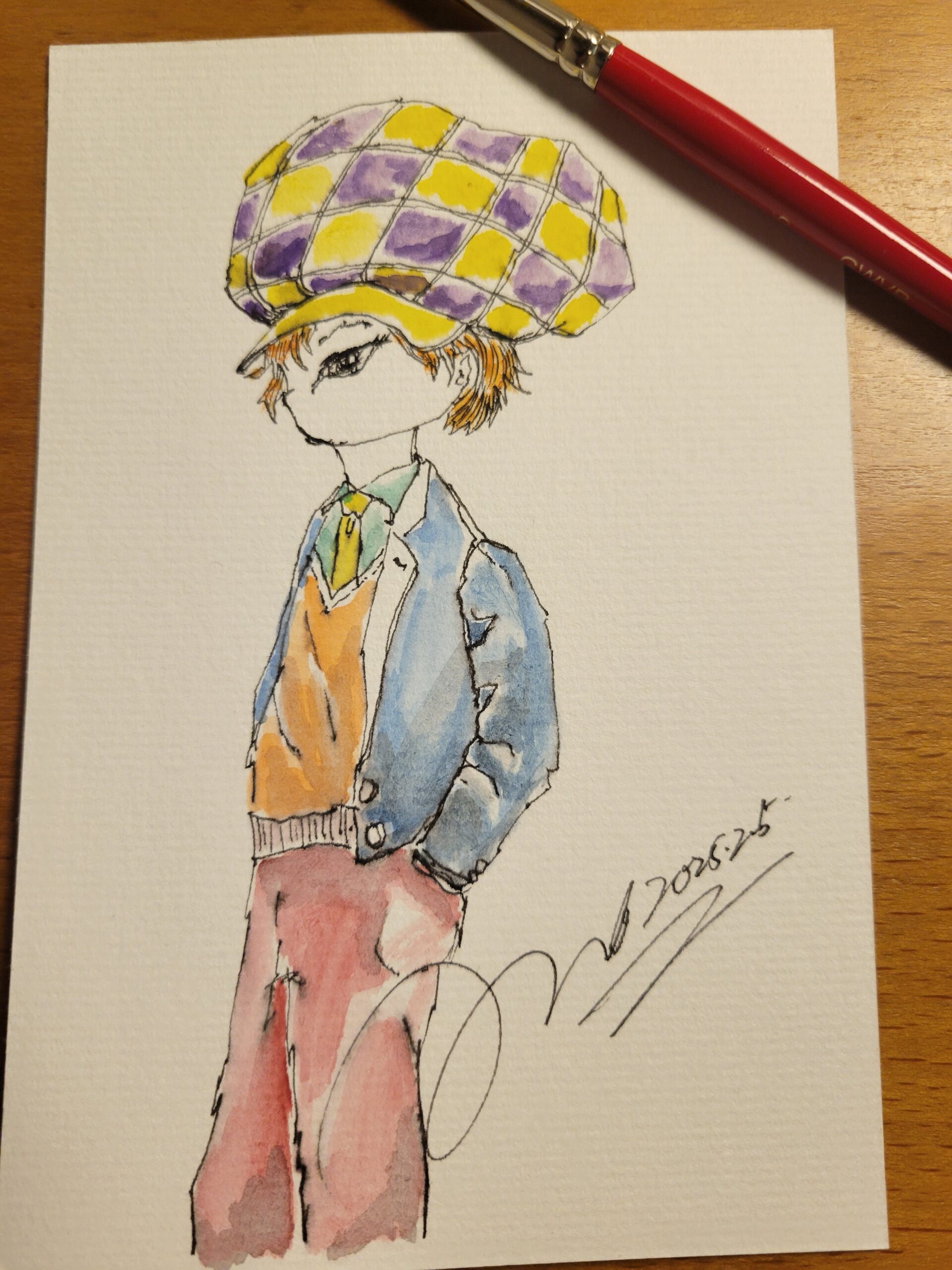> 日時: 2025-05-10 02:22:20
> 場所:[自宅]
> [スペシャルトーク]
`小児がん闘病` `差別と人権意識` `社会復帰の困難`
## テーマ
本講演では、講師であるほっし校長が10歳で末期の小児がんと診断され、手術や抗がん剤治療を受けながら1年以上にわたる闘病生活を経験した体験を通じて、当時の医療技術の限界や、抗がん剤の副作用だけでなく、社会的孤立や身体的特徴による差別、そして人権意識の変化について語られました。家族や友人の支えと他者の無理解、生きる希望の大切さ、社会復帰の困難さ、精神的苦痛や後悔の念が強調されています。また、当時の社会では人権や法的保護が十分でなく、差別的な言動が日常的に行われていたことも述べられています。
## 要点
1. 小児がん闘病体験
2. 46年前の医療状況(1978年頃、現在ほど手術や抗がん剤治療が進んでいなかった)
3. 抗がん剤の副作用や長期療養による社会的孤立
4. 精神的苦痛と「病気になったこと、生き残ったこと」への後悔
5. 身体的特徴(極度の痩せ)による差別と人権意識の変化
6. 闘病生活の長期化と社会復帰の困難
7. 家族や友人の支えと、他者の無理解や心ない言葉
8. 修学旅行や合宿での入浴時の苦痛と羞恥心
9. 痩せ細った身体への周囲の反応と、指を指される経験
10. 生きる希望と自己肯定感の模索、困難の中での前向きな姿勢
11. 当時の社会における人権意識や法的保護の未成熟さ
12. 体験談の一部は2025年冬発売予定の「マンタに載った少年」にも断片的に表現されている
## ハイライト
– `”目の前にあるものに対して、あれを見てみろと私に聞こえるように言うということは、とても残酷なことだというのが、私は実体験の中で学びました。”– ほっし校長`
## 章とトピック
### 小児がん闘病体験と社会的影響
> 講師が10歳の時、末期の小児がんと診断され、手術や抗がん剤治療を受けながら1年以上の闘病生活を送った。その過程で、当時の医療技術の限界や、社会的な人権意識の低さ、身体的特徴による差別や偏見を経験した。闘病後も社会復帰の際に精神的苦痛や孤立感を味わい、生きること自体を後悔するほどの辛さを感じたが、最終的には生きる希望を持ち続けることの大切さを語っている。また、当時はコンプライアンスや人権意識が十分でなく、欠点を指摘されたり、指を指されることが日常的に行われていたことも強調された。
– **要点**
– 46年前(1978年頃)の医療技術は現在ほど進んでおらず、手術や抗がん剤治療の選択肢も限られていた
– 抗がん剤の副作用や長期療養による社会的孤立が大きな問題だった
– 闘病生活の中でさらに痩せ細り、身体的特徴が顕著になった
– 身体的特徴(痩せ細った体)による差別や偏見が日常的に存在し、指を指されたり名指しで欠点を指摘されることがあった
– 当時は人権意識や法的保護が十分でなく、差別的な言動が許容されていた
– 家族や友人の支えがあった一方で、他者からの無理解や心ない言葉に苦しんだ
– 精神的な苦痛が大きく、病気になったことや助かったこと自体を後悔するほど追い詰められた
– 社会復帰後も、修学旅行や合宿などで身体をさらす場面が大きなストレスとなった
– 生きる希望を持ち続けることの重要性と、自己肯定感を取り戻そうとする努力
– 体験談の一部は2025年冬発売予定の「マンタに載った少年」にも断片的に表現されている
– **説明**
講師は10歳の時に末期の小児がんと診断され、手術も「ダメ」と言われながらも受けることができ、抗がん剤治療を含む1年以上の闘病生活を送った。当時の医療技術は現在ほど進歩しておらず、治療や副作用が非常に辛かった。闘病生活の中でさらに痩せ細り、社会復帰後もその身体的特徴が原因で差別や偏見を受けた。特に、修学旅行や合宿などで大浴場に入る際、他の生徒から指を指されたり、心ない言葉を浴びせられるなど、精神的に大きな苦痛を感じた。友人たちは理解を示してくれたが、他の人々の無理解や差別的な言動により、生きること自体を後悔するほどの苦しみを味わった。しかし、負けたくないという思いから、大浴場に堂々と入り、生きる実感を味わおうとするなど、自己肯定感を保つために前向きな行動を選択した。こうした体験を通じて、身体的特徴による差別や人権意識の重要性、家族や友人の支えの大切さ、社会復帰時の精神的ケアの必要性についても語られている。
– **Examples**
> 高校の修学旅行で北海道に行った際、ホテルの大浴場で他の生徒から痩せ細った身体を指摘され、「あれを見てみろ」「ひでえな」といった心ない言葉を浴びせられた。友人たちは静かに見守ってくれたが、他の生徒の無理解により精神的に大きな苦痛を感じた。それでも負けたくないという思いから、大浴場に堂々と入り、生きる実感を味わおうとした。
– 修学旅行や合宿などの集団生活の場で、身体的特徴が注目されやすい状況だった。
– 友人たちは配慮を示したが、他の生徒は無遠慮に指摘し、差別的な言動をした。
– 精神的な苦痛がピークに達したが、自己肯定感を保つために前向きな行動を選択した。
– 当時は人権意識や法的保護が未成熟で、差別的な言動が社会的に許容されていた。
– **留意点**
– 身体的特徴による差別や偏見が精神的苦痛を増幅させることを理解する
– 当時と現在の人権意識や法的保護の違いを認識する
– 家族や友人の支えの重要性を再確認する
– 社会復帰時の精神的ケアの必要性を考慮する
– 体験談の一部は今後出版予定の作品にも表現されている
– **特別な状況**
– もし身体的特徴を理由に差別的な言動を受けた場合、信頼できる家族や友人、専門家に相談し、精神的なサポートを受けることが重要です。
– 集団生活や学校行事で身体をさらす場面がある場合、事前に教員や関係者に配慮を求めることが推奨されます。
■英語に翻訳いたしました。
**Date and Time:** 05/10/2025 02:22:20
**Place:** [Insert Location]
**Title:** [Insert Title]
**Battling Childhood Cancer: Discrimination, Human Rights Awareness, and Challenges of Reintegration into Society**
—
**Theme**
In this lecture, Principal Hoshi, who was diagnosed with terminal childhood cancer at age 10, shares his experiences of a battle against cancer that spanned over a year, involving surgeries and chemotherapy. Through his story, he highlights the limitations of medical technology at the time and discusses not only the side effects of chemotherapy but also the social isolation and discrimination he faced due to his physical appearance, as well as his evolving awareness of human rights. He emphasizes the support of family and friends, the misunderstanding and harsh words from others, the importance of hope, the difficulties of reintegration into society, and the mental anguish and regret he felt. Additionally, he reflects on how, at that time, human rights and legal protection were inadequate, with discriminatory behaviors being common in everyday life.
**Key Points**
– Experience of battling childhood cancer
– Medical context from 46 years ago (around 1978, when surgeries and chemotherapy were not as advanced as today)
– Issues of social isolation due to side effects of chemotherapy and prolonged medical care
– Mental anguish and regret over “getting sick and surviving”
– Discrimination based on physical features (extreme thinness) and changes in human rights awareness
– Challenges of a prolonged illness and the difficulty of returning to society
– Support from family and friends vs. misunderstanding and harsh words from others
– The pain and shame of communal bathing during school trips or camps
– Social reactions to his emaciated body and the experience of being pointed at
– The search for hope and self-acceptance, and maintaining a positive attitude amidst adversity
– Immaturity of human rights awareness and legal protection in society at the time
– Experiences partially depicted in the upcoming book “The Boy Who Rode Manta,” set for release in winter 2025
**Highlight**
“I learned through personal experience that saying things like ‘Look at that!’ loudly enough for the person to hear can be incredibly cruel.” — Principal Hoshi
**Chapters and Topics**
– Experiences of battling childhood cancer and its social impacts
– Diagnosed with terminal childhood cancer at age 10, the speaker underwent surgery and chemotherapy during over a year of treatment. In the process, he experienced the limitations of medical technology at the time and societal low awareness of human rights, and discrimination based on physical traits. Even after recovery, he faced mental anguish and feelings of isolation upon reintegration into society, to the point of regretting surviving, but ultimately underscored the importance of maintaining hope.
– During this period, compliance and awareness of human rights were insufficient, and pointing out faults or being pointed at was a commonplace experience.
**Highlights**
– Medical techniques from 46 years ago (around 1978) were not as advanced as today, with limited options for surgery and chemotherapy.
– Side effects from chemotherapy and long-term care led to serious social isolation.
– The illness made him even thinner, accentuating his physical traits.
– Discrimination and prejudice based on physical traits (thinness) were pervasive, often leading to being pointed out or faulted by name.
– At the time, human rights awareness and legal protection were lacking, allowing for discriminatory speech.
– Despite family and friends’ support, misunderstanding, and harsh words from others were painful.
– The psychological strain was severe, bringing feelings of regret for being sick and even surviving.
– Following the illness, communal situations like school trips posed significant stress over exposing his body.
– Emphasizing the importance of hope and efforts to regain self-esteem.
– Some experiences will be depicted in his upcoming book “The Boy Who Rode Manta,” set for release in winter 2025.
**Examples**
– During a high school trip to Hokkaido, others at the hotel’s large bath commented on his emaciated body with harsh words like “Look at that,” and “That’s awful.” While friends quietly supported him, he deeply felt the mental strain caused by others’ misunderstandings. Nevertheless, refusing to be defeated, he boldly entered the bath, striving to feel alive.
– In communal living situations like school trips, his physical traits were often highlighted.
– Friends showed understanding, but others were unrestrained in pointing out and making discriminatory comments.
– Mental anguish peaked, but he chose positive actions to retain self-esteem.
– Back then, human rights awareness and legal protections were underdeveloped, allowing discriminatory behavior.
**Recommendations**
– Recognize how discrimination based on physical traits can amplify mental anguish.
– Acknowledge differences in human rights awareness and legal protection between then and now.
– Reaffirm the importance of family and friends’ support.
– Consider the need for mental care after reintegration into society.
– Experiences are partially reflected in the upcoming publication.
**Special Circumstances**
– If suffering from discriminatory behavior due to physical
【絵本】マンタに乗った少年
は、2025年冬全国書店にて発売されます。
マンタに乗った少年の原作は、
「ガンと闘う10歳の僕におきた奇跡」です。
こちらの書籍版はこちらから
☆☆☆☆☆☆☆☆☆☆☆☆☆☆☆☆☆☆☆☆☆☆☆☆
生き抜く力【ガンと闘う10歳の僕に起きた奇跡】|ほっし校長|note
жжжжжжжжжжжжжжжжжжжжжжжжжжжжжжжжжжжж



